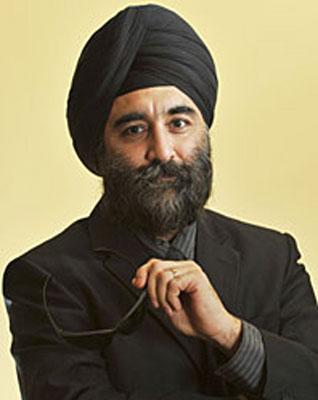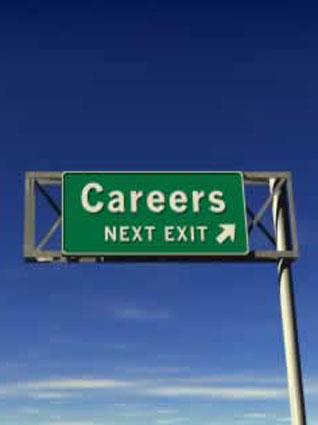People
Microsoft's Parminder Singh:
He Heads His Own United Nations
by PATRICK BRETHOUR
Parminder Singh thought he was a Canadian when he applied for a technology-worker visa to the United States in the late 1990s - and with good reason.
He'd lived in Canada since he was six years old, built his career here, and had long since renounced his Indian citizenship in favour of Canadian credentials.
But when it came time to line up to get into the U.S. job market for tech workers, immigration officials took one look at his birthplace, New Delhi, and lumped him in with applicants from India. With a low ceiling set for H1-B visas, Mr. Singh didn't make the cut.
"I felt kind of cheated," he recalled in an interview this week. To make matters worse, his kid sister Amrit applied and breezed through, since she had been born after the Singh family immigrated to Halifax (Nova Scotia, Canada) in the 1960s.
"As a result, she got preferential treatment!" he exclaims.
Eventually, Parminder Singh made his way into the United States using a NAFTA visa, and landed at Microsoft Corp. The sting of that unhappy visa experience might linger, but it will come in handy at his new job: Running the new software development centre that Microsoft is opening in the Vancouver suburb of Richmond - and recruiting workers from around the world.
Parminder Singh, whose appointment is being officially announced today, is careful not to directly criticize the U.S. government, but the plain fact is that protectionist sentiment south of the border has meant a hard cap on technology-worker immigrants at a level far lower than what the industry needs.
In just one day, U.S. immigration services received 150,000 applications - more than double the total annual quota of 65,000.
So, Parminder has lots of company in the I-didn't-get-an-H1-B club. Microsoft gets the third-biggest slice of H1-B visas, but the software giant didn't even come close to meeting its needs.
While Parminder is diplomatic, the company's government affairs director, Jack Krumholtz, was much more blunt in comments late last month, saying the Richmond software centre was motivated in part by the H1-B cap, and that it could be the start of a bigger move.
"We currently do 85 per cent of our development work in the U.S., and we'd like to continue doing that," he told Associated Press. "But if we can't hire the developers we need, we're going to have to look to other options to get the work done."
Faced with the hard cap, Microsoft has come up with a way to cut through the knot of anti-immigration sentiment by setting up a satellite campus in Richmond. Up to 300 employees, software programmers for the most part, will work at the development centre. They will start off with relatively low-grade testing work, but Parminder Singh says he has no doubt that his new hires will be working on major software projects before long.
Canada's more lenient immigration policy has just become a major competitive advantage in attracting high-paying, brainy jobs. The proof is on the office wall of the development centre, still under construction in the south of Richmond.
Tacked on the wall is a world map, with dozens of coloured stickers, each pointing to the home town of one of the newly hired software programmers. There are a smattering from South America and Africa, a generous dusting through Europe and clusters in the Middle East, the Indian subcontinent, Southeast Asia and China.
There are none in Canada or the United States.
"It's a United Nations of talent," says Parminder, whose own sticker, of course, points to New Delhi.
But there is something else that the Lower Mainland has going for it in the battle to attract international talent. Any immigrant from China would feel right at home in Richmond, where Chinese-language signs are common and fabulous Asian cuisine is easy to come by. Similarly, nearby Surrey would ease the transition for any recent arrivals from Punjab and other parts of the subcontinent.
It is a far different experience for immigrants than that of, say, Parminder Singh, who grew up as one of a handful of Sikh families in the Halifax area.
"Clearly, you stand out as an individual," he says.
These days, he jokes, when he visits his brother in Surrey, it's the guys without a turban who are the standouts.
 
[Courtesy: The Globe & Mail]
September 7, 2009
Conversation about this article
1: Gurjender Singh (Maryland, U.S.A.), September 07, 2009, 5:17 PM.
Nice story, but I could not understood the real meaning of the last sentence: "These days, he jokes, when he visits his brother in Surrey, it's the guys without a turban who are the standouts." [Editor: It appears that the guys in turbans are in a majority.]
2: Kanwal Nain Singh (Lindsay, Ontario, Canada), September 07, 2009, 9:31 PM.
It would be more relevant if Parminder Singh's picture accompanied the article.
3: N. Singh (Canada), September 09, 2009, 3:02 PM.
Congratulations to Parminder Singh! He is an example of a modern, successful Sikh man who has excelled in the corporate / business environment. We need more positive Sikh role models like him in British Columbia where a negative image of Sikhs is constantly being projected by the media!






